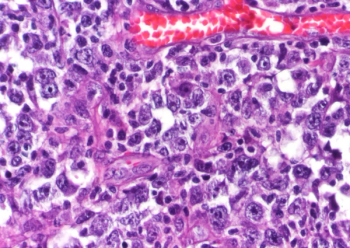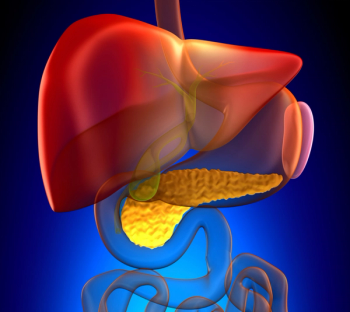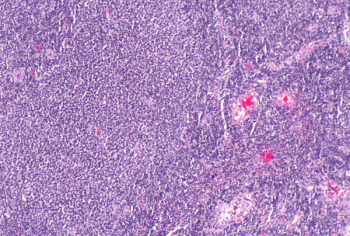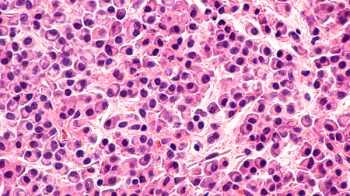
Associated postherpetic neuralgia risk factors are history of diabetes mellitus, age, and immune-related disease.
Erin Hunter is an assistant editor at Pharmacy Times®. She is a proud alumna of the University of Massachusetts. She graduated with degrees in Journalism, Art History, and Environmental Conservation.

Associated postherpetic neuralgia risk factors are history of diabetes mellitus, age, and immune-related disease.

The amplitude of vocal cord movement may indicate patient health and wellbeing.

The additional indication expands its therapeutic role beyond advanced non-small cell lung cancer.

Age was a contributing factor of chronic kidney disease and albuminuria in patients with type 1 and type 2 diabetes.

Treatment observably eased obsessive-compulsive disorder symptom severity in young patients, however, symptoms still caused students to be absent from school at least 2 days every month.

Traditionally, endemic fungi are characterized by geographical distribution, however, disease-causing fungi may infect people beyond these havens.

Ponatinib could be the first targeted treatment approved in the United States for Philadelphia chromosome-positive acute lymphoblastic leukemia.

Following the positive phase 3 results, GSK anticipates regulatory submissions in the first half of 2023.

Despite a limited understanding about access to oral anticancer drugs, new research finds challenges in patient and clinician decision-making.

The American Heart Association said that yoga, tai-chi, and certain alternative medicines may be beneficial for heart failure, whereas other products may be harmful.

It remains a challenge to understand how to stratify risk of liver diseases before they have reached the advanced stage.

Low socioeconomic status was associated with greater in-hospital mortality and decreased use of advanced therapeutic options.

In recent decades, clinical trials have grown increasingly restrictive and exclusive, which has impacted the inclusivity and diversity of selected trial participants.

Following a phase 2 analysis of OP-1250 with palbociclib, researchers recommend an OP-1250 dose level of 120 mg/day for future trials.

Guidelines for HER2-low expressed cancer could define who and how patient recieve drugs, said expert live from San Antonio Breast Cancer Symposium 2022.

Expert sits with Pharmacy Times to share the promising results of a study that evaluated the safety of a new antibody drug conjugate with radiation therapy.

The decision is updated from a 2017 recommendation to screen people for obstructive sleep apnea, which can lead to daytime sleepiness and other adverse outcomes.

A new radiation therapy may reduce toxicity compared to standard therapy, paving the way for a safer and possibly, more effective, treatment of early-stage breast cancer.

Increasing workplace diversity, addressing health disparities, and overcoming disruptions from COVID-19 are considered top goals among pharmacy stakeholders.

White adults in their midlife showed slower brain aging than Black and Latinx individuals, but between mid- and late life, they showed increased signs of aging.

The allogeneic CAR-T cell therapy is in development for relapsed or refractory large B cell lymphoma and relapsed or refractory B cell non-Hodgkin lymphoma.

Data suggest that few US adults are aware that wine can increase the risk of cancer.

Data from the fourth interim analysis of the ARC-7 trial shows that a combination of Fc-silent anti-TIGIT and anti-PD-1 molecules are effective for objective response rates in certain lung cancers.

Defending yourself against the flu and spreading diseases can be as simple as washing your hands.

An experimental drug could help scientists understand the development of mantle cell lymphoma and potentially increase overall survival.

Flu vaccines can protect against severe outcomes and death, but how long does it last? Who should be getting one?

Data to be presented at the 45th Annual San Antonio Breast Cancer Symposium suggest that the novel sequencing test can detect signs of disease recurrence across breast cancer subtypes, improving outcomes.

Zanubrutinib expressed better cardiac safety measures, higher progression-free survival, and lower discontinuation rates in the ALPINE trial compared with compared ibrutinib.


Patients with lung cancer in an early-intervention lung screening program were found to have a survival rate nearly 20-times longer than patients with a late-stage diagnosis.